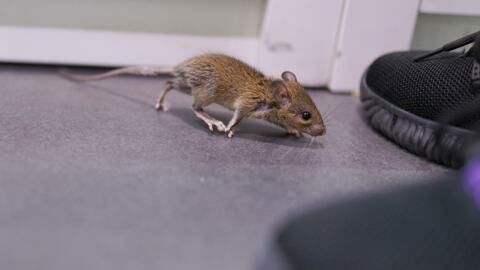TW: arachnophobia
Discover our latest podcast
After a serious scare about giant, invasive spiders in American cities, it's now Britain's turn to be confronted with the spread of exotic spiders. These arachnids are thriving here thanks to two factors: global warming, which is creating an increasingly hospitable climate, and international trade, which is providing numerous travel opportunities for spiders, inadvertently introduced by the global movement of goods and people.
According to experts, Cornwall and Devon are hotspots for these spiders from elsewhere, due to their harbours and mild climate, which allow exotic species to survive the British winter.
Exotic animals spreading in Britain
As the Guardian reports, of the 3,500 non-native species that have become established in Britain, 50 are spiders. It should also be noted that of these 3,500 species, only around 10-15% are considered to be 'invasive', with the result that they have a negative environmental or human impact. These include the grey squirrel and the Asian hornet.
However, Helen Smith, Head of Conservation at the British Arachnological Society, told the Guardian:
Britain’s spider fauna, along with the rest of our wildlife, is changing more rapidly than ever before. As new, exotic species spread, particularly beyond urban areas, the chances of them impacting on less common native species increase.
An exotic spider 'new to science' discovered on an English campus
A small 'new to science' jumping spider measuring around 4 mm was recently identified on the Penryn campus of the University of Exeter and the University of Falmouth in Cornwall. As the closest relative of this new species is found in the Caribbean, it is likely that Anasaitis milesae also comes from a faraway land. During a biological survey on the Penryn campus, in Cornwall, Tylan Berry, Devon and Cornwall Area Organiser for the British Arachnological Society, said:
It's amazing that something can hide in plain sight. This spider is established on campus and easy to find in large numbers, living and breeding, and was also found in another ornamental garden 50km away. It's a lovely little thing that looks a bit like an old 1970s carpet - brown and white and patterned.
New arrivals are also much more conspicuous: Zoropsis spinimana, a Mediterranean spider known as the false wolf spider that thrives in London homes, and Segestria florentina, known for its green fangs, now found in southern Britain. As well as being imposing in size, both these species are reputed to have painful (but not dangerous) bites.
As for Badumna longinqua, originally from Australia, it is considered to be one of the most invasive spider species in certain countries where it has been accidentally introduced, such as Japan, the United States and Brazil. Although it has not yet become well established in continental Europe, this large spider has spread rapidly across Great Britain since it was first spotted in 2021.
A danger to the environment?
Helen Smith told the Guardian:
As well as competing for prey and for living spaces, these spiders may bring with them new parasites and diseases, an issue well known from invasive grey squirrels and crayfish but very poorly studied in spiders.
Around 15% of our native spider species are already threatened with extinction as a result of habitat loss and climate change – in the future, non-native species could well add to the risks they face.
This article has been translated from GEO.
Read more:
⋙ Never kill a spider in your home, here's the surprising reason why
⋙ Brits warned of 'sex-crazed' spiders invading their homes, here's where they may be hiding
⋙ This man's flesh started rotting after being bitten by the UK's most dangerous spider
Source used:
Guardian: Exotic spiders flourishing in Britain as new jumping species found in Cornwall















